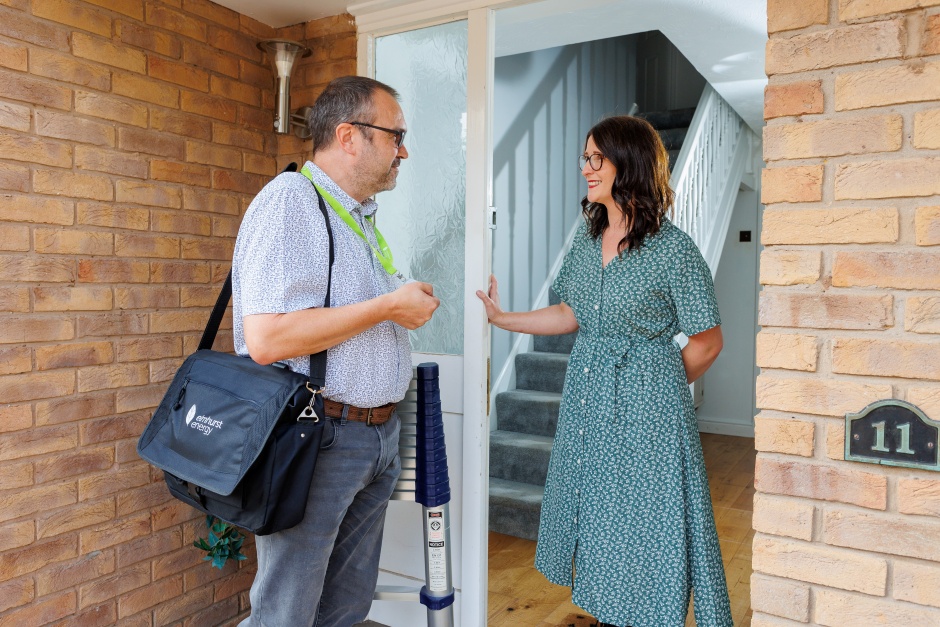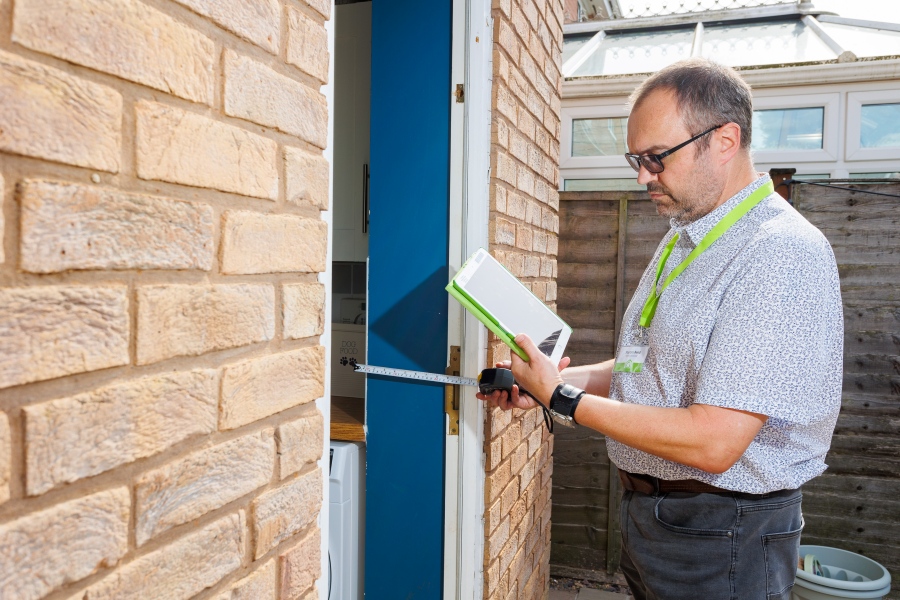How Long Does It Take to Become an Energy Assessor?
Government’s energy efficiency targets, changes to Minimum Energy Efficiency Standards (MEES) Regulations , and a heightened interest in heat pump installations, has led to domestic energy performance being covered extensively by mainstream media. Questions have been raised not only about the current Energy Performance Certificate (EPC), which is due to be reformed, but also the training and competence of those who are producing them.
There appears to be a common misunderstanding in some news outlets that it only takes five days to become a fully qualified Domestic Energy Assessor (DEA).
That is not the case for Elmhurst training courses.
This blog explains our approach and highlights the quality measures we take to ensure competent and well-trained energy assessors. Each training course delivers high-quality outcomes, ensuring participants receive practical training on live properties and use government-approved software.
Far from a tick-box exercise, DEA training involves complex subject matter, and in-depth training and assessment.

How To Become a DEA
The time it takes to complete the qualification and become a DEA can range anywhere between four weeks to 12 months. While the course is accessible to individuals with no prior experience or qualifications, the time it takes to finish and gain confidence in the role very much depends on the learner’s previous experience within the built environment as well as the amount of consistent time they can dedicate to the course and their portfolio.
Before even attending the course, learners will be given access to an online learning portal containing approximately 10 hours of pre-course content. This foundational material is designed to equip them with essential knowledge, ensuring that they are well-prepared for the live training sessions. The live training, led by an expert trainer, spans three to five days (depending on which delivery option is selected) and provides an intensive, comprehensive learning experience.
During and after the course, learners’ are required to complete a number of tasks to demonstrate their understanding of the training and the industry requirements, including liaising with customers and understanding the need for contracts, terms and conditions and complaints procedures.
They will also need to complete risk assessments on-site, produce floorplans that meet RICS guidelines for measurement, and take photographic evidence for auditing and legal purposes. This process will ensure they have knowledge in health and safety when visiting properties, understand procedures for dealing with vulnerable people, data sharing and protection policy and learn when to – or not to – complete an energy assessment.

Going Beyond Just Theory
The course is delivered in a range of lengths and mediums to cater for many learning styles and for a variety of prior knowledge and experience. Before qualifying, learners must submit five test case properties (which is part of their portfolio) that cover a range of property types and installed technologies. This hands-on experience helps them develop a well-rounded understanding of different building characteristics and energy systems, refining their skills before conducting live assessments.
As part of this process, learners perform risk assessments, collect and input data into the software as they would in real-life scenarios, generate results, and communicate their findings to clients. By working through diverse case studies, they enhance their confidence, adaptability, and problem-solving abilities, ensuring they are fully prepared for real-world assessments.
These are evidenced and submissions are assessed by Elmhurst’s expert assessment team to ensure they meet the same standards as our government accredited scheme standards. They receive feedback and learning opportunities to ensure each learner meets the standards required of them.
Guided Learning
The Level 3 Certificate in Domestic Energy Assessment requires 120 Guided Learning Hours (GLH), which refers to the time a learner spends being taught or instructed by a tutor or trainer. This includes classroom sessions, practical training, and any other direct teaching activities.
GLH are designed to ensure that learners receive the necessary instruction and support to understand and master the course material.
These requirements are set by awarding bodies, such as Awarding Body for Built Environment (ABBE). Elmhurst are audited twice a year by our awarding body and awarding bodies are governed by Ofqual.
Our courses attract a diverse range of people with a variety of different experiences, and we provide access to all GLH for every learner. To fulfil this requirement, we deliver:
- Three- and five-day training courses with a trainer: This provides a solid foundation and hands-on experience.
- Weekly portfolio support sessions post training course: These tutor-led sessions cover each task and help learners progress steadily.
- Dedicated one-to-one sessions post training course: Supervised sessions allow for the assessment of competence and provide learning opportunities throughout the process.
- Telephone tutorials post-training: Learners have access to industry-leading tutors and qualified experts Monday to Friday, 9-5, via our technical support teams. Everyone in this service is qualified in the subject, has practised in the industry and trained to provide valuable learning opportunities.
This comprehensive approach ensures that all learners receive the support and guidance they need.
Going Beyond Training
At Elmhurst, we see training as just the beginning of a learner’s journey. As a government-approved accreditation scheme, we provide ongoing support and robust quality assurance processes to ensure learners continue to meet industry standards while keeping their skills and knowledge up to date.
Our commitment to professional excellence includes regular auditing, Continuing Professional Development (CPD) requirements, and adherence to strict terms, conditions, and codes of conduct. This structured approach ensures assessors are given everything they need to maintain high standards throughout their careers.
Elmhurst’s Head of Training, Josh Wakeling, comments:
“As the Head of Training at Elmhurst, I am proud of the rigorous and comprehensive approach we take to ensure our trainees are well-prepared for their roles as energy assessors. Our commitment to quality and continuous improvement sets us apart and ensures that our assessors are competent and confident in their work.
Unlike, independent training providers, our role as a government approved accreditation body ensures that the support of learners doesn’t just end when they qualify. With access to technical support, industry-leading software, ongoing CPD and regular auditing carried out to ensure they are delivering quality assessments for homeowners. Just as we expect our accredited assessors to adapt and improve, we do the same with our training. We continuously refine our courses based on learner feedback, common auditing challenges, and the support queries we receive—ensuring that our training remains relevant, effective, and aligned with industry demands.”
Become an Energy Assessor
If you’re interested in becoming an energy assessor, visit our Domestic Energy Assessor Training page to find out more.
FIND OUT MORE >
